REQUIRED NON-TECHNICAL (ESSENTIAL) SKILLS BY EMPLOYERS FOR SHIPBOARD EMPLOYMENT OF MANAGEMENT LEVEL OFFICERS
The study seeks to examine the required training programs that are beyond the requirements of the Standards of Training Certification and Watchkeeping (STCW), as amended, focusing on the non-technical skills of MLOs that are assessed and required by the employers.
Specifically, the objectives of the study are: 1) Determine the non-technical skills of the management level deck and engine officers for their rank and position onboard vessels, as required by employers. 2) Determine the interventions implemented by employers to enhance the non-technical skills of the MLOs, 3) Determine the availability of the identified training programs for the non-technical skills requirements of MLOs.
Findings and Conclusions
One of the considerations of the employers in the recruitment, selection and approval for shipboard employment of management level officers/senior officers other than their sea service, experience and technical competence is their nontechnical (essential) skills.
The human element is one of the identified factors that cause maritime accidents. It has been reported that “while the total number of accidents is declining, human error continues to be a dominant factor in 80–85% of maritime accidents†(Barnett, 2017). Investigations into accidents, i.e, grounding of ships, among others, highlighted a number of failures of the crew onboard particularly the senior officers that relate to lack of assertiveness, stress, fatigue, team coordination, communication, leadership, decision-making and attention to the task (Alderson, 2017). This observation is also reinforced by Prof. Barnett (2006) as he said that majority of accidents and incidents are not caused by technical problems but by the failure of the crew to respond appropriately to the situation.
The significance of non-technical skills in commercial shipping operations is universally recognized in addition to technical expertise in responding to emergency situations and in making high level decisions under pressure on board vessels. This is because the non-technical skills complement with the technical skills bringing about efficient and effective ship operations and task performance (Alderson, 2017). These skills are required by employers - manning/shipping companies and vessels principals to keep the crew safe, the vessel operations in order, and to carry the goods to their destinations safely and on time.
To ensure that the vessel operations are safe and goods are delivered to target destination safely and on time as well the vessel is in compliant with all inspections, i.e., statutory, vetting, class, flag, PSC, internal and external audits and in adherence to environmental protection policies, each manning and shipping company has its own hiring practices observed in assessing and evaluating the competencies and non-technical skills required from prospective applicant MLO(s) for the position applied onboard vessel.
Skills Requirement
Preference on what non-technical skills the MLO/senior officer should possess depends on the requirement of the employers for the rank and position applied for shipboard employment. The requirement on non-technical skills from MLOs may vary according to the skills need and/or qualification requirements of the vessel’s principals for a specific type of vessel when the company is a transnational company or the company has many principals of different nationalities or by a single principal manning/shipping company. Nonetheless, when there is only one vessel’s principal in a company, the required non-technical skills from MLOs/senior officers are the same in all types of vessels.
Findings show that manning and shipping companies observe different practices in hiring MLOs for senior position onboard vessel. There are companies that assess applicant MLOs thru the conduct of psychological or personality test on which evaluation is based on the matrix requirement of the company or client and endorsement of the applicant to the principal for hiring approval is based on the test result. There are also companies that conduct series of interviews, recommends applicant to undergo training for skills enhancement and approval for hiring is done by the client/vessel principal or by the company itself. The requirements of the client and/or company are made as bases on what non-technical skills would be assessed and evaluated from applicants for senior positions onboard a vessel.
Identified Non-Technical (Essential) Skills by Employers
The identified non-technical (essential) skills from MLOs/senior officers that are assessed and evaluated by respondent manning/shipping companies, as required for their rank and position onboard vessel, are focused in the management skills grouped under two areas, as follows:
Non-technical Skills of MLOs as Assessed and Evaluated by Employers
0 Comment(s)
Upcoming Event
Research Archives
Subscribe to our Newsletter
Discover the latest upcoming and ongoing research. Don't forget to pre-register for the upcoming events.
Updates will be notified through your registered email to this portal.

